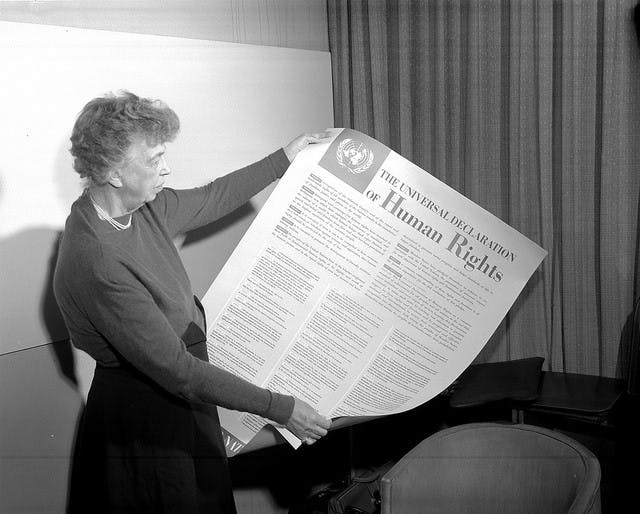“All human beings are born free and equal in dignity and rights,” reads Article 1 of the Universal Declaration of Human Rights.
December 10, Human Rights Day, kicks off a year-long campaign to mark the 70th anniversary of the Universal Declaration of Human Rights in 2018. Here are six facts you may not know about this groundbreaking declaration
1. The Universal Declaration of Human Rights is a milestone document in history; the United Nations notes that “it sets out, for the first time, fundamental human rights to be universally protected.”
2. The declaration is “generally agreed to be the foundation of international human rights law” and has inspired more than 80 international human rights treaties and declarations, according to the UN.
3. The UN General Assembly adopted the declaration on December 10, 1948. While progress has been made in upholding human rights, violations continue, and the Universal Declaration of Human Rights continues to remind us that we all have human rights and we must stand up for them.
4. It is the most translated document in the world with over 500 translations in different languages. UN Human Rights Officer Elena Ippoliti, who started the translation project, said, “This project was meant to be a message of unity within diversity – fostering the sense of our common humanity embodied in the UDHR while embracing and valuing our diversity.”
5. Eleanor Roosevelt was chair of the declaration’s drafting committee, which included members from around the world – a sign of the universality of human rights.
6. The declaration includes a preamble and 30 articles expanding on the human rights of all people, from freedom of expression to freedom from torture to the right to equality before the law.
In a message for Human Rights Day in 2017, UN Secretary-General António Guterres, said:
“While human rights abuses did not end when the Universal Declaration was adopted, the Declaration has helped countless people to gain greater freedom and security. It has helped to prevent violations, obtain justice for wrongs, and strengthen national and international human rights laws and safeguards.”
Human rights are integral to the daily lives of every person on the planet; securing human rights is also a key pillar of the work of the United Nations and essential to achieving peace and progress.
As former UN High Commissioner for Human Rights Zeid Ra’ad Al Hussein said about the Universal Declaration of Human Rights:
“It was drawn up to cover not only civil and political rights, but also social, economic and cultural rights, in the full understanding that you cannot have development without human rights and you cannot have a full enjoyment of human rights without development – and peace and security depend on both.”
The UN Human Rights Office, noting today’s threats to human rights around the world, is calling on every person to be a human rights champion. Visit its website to get involved.

